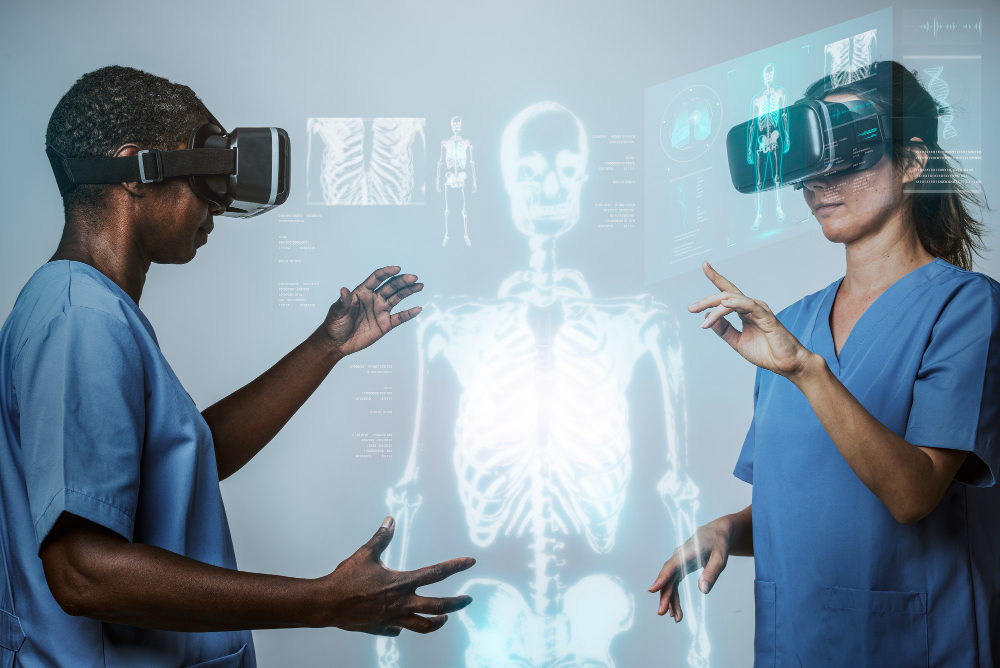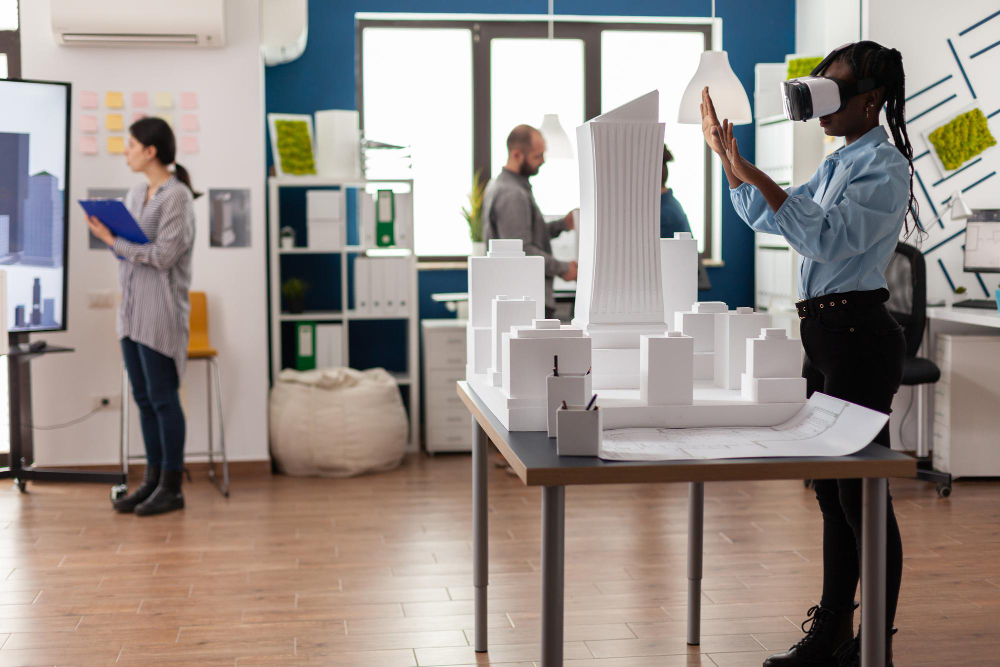Virtual Reality: Beyond Gaming
Over the years, virtual reality (VR) has emerged as a groundbreaking technology that offers immersive and interactive experiences beyond gaming. Initially associated primarily with the gaming industry, VR has now transcended its original purpose and found applications in various fields, from entertainment and education to healthcare and beyond. This article explores VR’s transformative potential and highlights some of the diverse applications shaping the future.
1. Virtual Reality in Education
Integrating virtual reality into education has opened new frontiers for immersive learning experiences. Students can now explore historical landmarks, journey through outer space, or visit different countries, all from the comfort of their classroom. VR brings subjects to life by allowing students to visualize complex concepts, turning abstract theories into tangible experiences that enhance understanding and engagement. Moreover, by fostering active participation, VR offers an inclusive learning environment that caters to different learning styles, making education more accessible and personalized.

2. Virtual Reality in Healthcare
Virtual reality has become a promising tool in the healthcare industry, revolutionizing how medical professionals train, diagnose, and treat patients. Through VR simulations, doctors can practice surgeries, fine-tune their skills, and gain valuable experience in a risk-free environment. This technology has also proven effective in pain management, distraction therapy, and rehabilitation. VR-based therapy is helping patients overcome phobias, PTSD, or chronic pain by providing controlled and immersive environments tailored to specific needs. Additionally, VR is being explored for mental health treatment, offering meditation, relaxation, and stress-relief experiences.

3. Virtual Reality in Architecture and Design
Architects and designers are embracing virtual reality to revolutionize their creative process. VR allows professionals to visualize their designs at unprecedented detail and scale, providing clients with a realistic preview of what the final outcome will look like. This technology enables designers to make informed decisions during the planning phase, reducing errors and potential redesign costs. Clients can walk through virtual spaces, evaluate lighting, manipulate materials, and make changes before construction begins. Integrating VR in architecture and design augments collaboration and ensures a more efficient workflow.

4. Virtual Reality in Tourism and Hospitality
The tourism and hospitality industry has experienced a significant boost with the integration of virtual reality. Potential travellers can take virtual tours of destinations, providing an immersive experience that helps them make informed decisions when planning their trips. Hotels and resorts utilize VR to showcase their accommodations, facilities, and amenities, giving guests a real sense of the experience before making reservations. VR tourism has also opened up new possibilities for historical and cultural experiences, enabling individuals to explore ancient sites or famous landmarks from anywhere in the world.

5. Virtual Reality in Training and Simulation
Virtual reality offers realistic and cost-effective training solutions, from military training to vocational skills development. Complex scenarios can be recreated in virtual environments, allowing trainees to acquire practical skills without real-world risks. Industries such as aviation, engineering, and manufacturing employ VR to train pilots, engineers, and technicians. This technology also extends to sectors like sports coaching, where athletes can analyze their performance, improve techniques, and simulate game scenarios. Virtual reality-based training maximizes efficiency, minimizes mistakes, and boosts confidence.
Virtual reality has evolved beyond gaming and holds immense potential in numerous fields. Its immersive characteristics and ability to transport users to different virtual environments make it an invaluable tool for education, healthcare, architecture, tourism, and training. As technology advances, we can expect further innovations and collaborations that leverage virtual reality to its fullest extent. Beyond gaming, virtual reality is shaping our world, offering transformative experiences that enhance learning, improve healthcare outcomes, fuel creativity, and redefine human interaction.



Leave a Reply